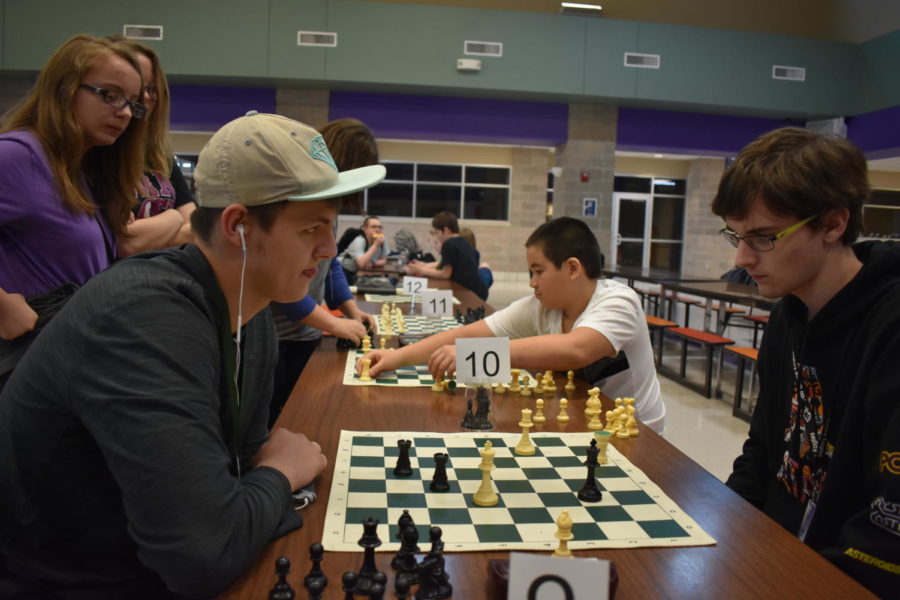Fair Grove Chess Club Hosts Tournament
April 8, 2019
Thursday, March 28th in the Middle School Commons the The Fair Grove Chess Club hosted a tournament, which is the third in a series of four tournaments in a competition for a league cup. The tournament hosted Weller Elementary in Springfield, the Springfield Park Board chess club, and various other students from schools throughout Springfield and Willard.
“The matches were completed in a ‘blitz’ format, meaning that each player has ten minutes on their clock. The player using white always goes first,” stated Chess Club Sponsor Michael Van Cleave before adding, “During each players turn their clock is counting down, When they complete their turn, they tap a button that switches the clock to their opponent’s time, which is also counting down from 10 minutes.”
The tournament consisted of three rounds and was split into two categories: Rated and Non-Rated. The Non-Rated section of the competition is open to all of the students who attend the tournament, the Rated section of the tournament however, is only open to the students with a membership to the United States Chess Federation (USCF). “Each time a player wins the unrated section of a tournament, they are given a free membership to USCF and placed in the rated section for the next tournament. So far Stephenie Dugan, Bailey Steele, Matthew Schroeder, Davey Ernster, and Waylon Wright have all earned USCF memberships,” said Mr. Van Cleave.
During the first round of each section the opponents are randomly assigned, the following rounds are determined by the points earned in the rounds before. “A win is one point, a loss is no points, and a stalemate results in both players getting half a point,” explained Bradley Schaffer a member of the Fair Grove Chess Club.
A player can win by either achieving a checkmate on their opponents king, or their opponent’s clock runs out of time.
Bradley Shaffer stated, “I’ve been doing fairly well…I have been playing since I was around six or seven and competing since eighth or ninth grade.”
“It’s not as hard as people think, people who don’t play often usually aren’t as bad as they think, they should give it a chance before disregarding it completely,” added Bradley.
